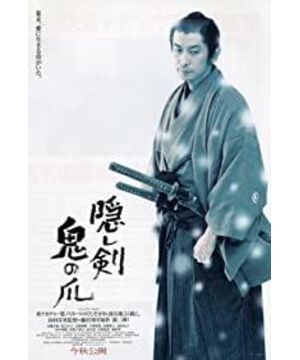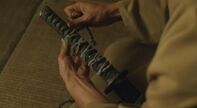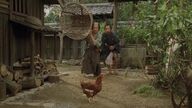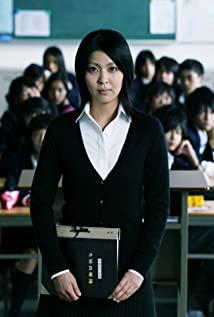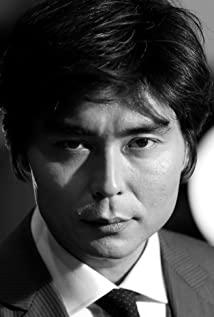"Hidden Sword and Ghost Claws" is another costume movie about the Tokugawa period after Yoji Yamada was nominated for the Oscar for Best Foreign Language Film in the United States last year. Yoji Yamada, who has filmed the longest series of movies in film history, "Men's Real Life", will use the work of the same novelist Shuhei Fujinori to shoot a two-part movie with a historical background, protagonist identity and image style similar to the previous film. The movie is not surprising. But even though the two films are similar in many respects, "Hidden Sword and Ghost Claw" is a last-generation samurai movie that is completely different from "Twilight Seihei".
The main story of "Twilight Kiyobei" is around the lower-order samurai Kiyobei played by Sanada Hiroyuki. After the death of his wife, Qing Bingwei had to take care of his demented mother and two young girls because his salary was not high. As a result, his lack of time to take care of his appearance and life became a laughing stock. Although he is strong in martial arts, he chooses to live in poverty and simplicity for the sake of his family. Since he was a child, he has admired Miyazawa Rie's friend's sister Tomoe, but he dared not express it because of the disparity in economic status. Because of the threat of a rebellious warrior to the lord, his true talents were discovered and conscripted by the lord. The danger he had to avoid for the sake of his family finally came, but because of this he got the love he thought he had lost. "Twilight Qingbingwei" presents the role of Qingbingwei very deeply, making the audience feel that he silently endures the huge pressure of multiple difficulties such as the country, society, family and feelings under the surface of bad words. The noble sentiment of Kiyobei in his three identities, samurai, father, and lover, is the true samurai spirit that the film wants to express.
Although it is also the story of a samurai, "Twilight Kiyobei" presents the spirit of the samurai through the different values and behavior choices of individuals in life, while "Hidden Sword and Ghost Claw" chooses to focus on the changes in the era faced by the last samurai, making both The creator becomes a very different film. Katagiri Sozo, played by Masatoshi Nagase, is a warrior with a sense of justice. Because his father died in order to prove his innocence, not only his salary was reduced, but his relatives were also gradually alienated. He is very different from Kiyobei in that there are a lot of scenes where he is trained in Western guns. On the one hand, the film uses a harlequin-like gun teacher and many ridiculous drills to mock this Western style. On the other hand, It also allows the audience to see that as the sword art is replaced by gunpowder, the entire Japanese samurai spirit has also fallen. Greed and viciousness have since found the best weapon, which can trample humanity on the ground and make strides for self-interest. In this era, a warrior like Kiyobei will no longer have any chance. Where does the spirit of the warrior manifest?
In "Hidden Sword and Ghost Claws", the samurai Zongtong, driven by the heart of justice, chose to go beyond the normal rules and legal principles of the time without considering his feelings and the relationship between monarchs and ministers. The film uses this to highlight that the true samurai spirit is no longer the restraint of introspection, but the act of courage when the world is lost. Zong Tong liked the house maid Kihui played by Matsu Takako, but he did not express his identity because of his identity. However, when he learned that Xihui, who was married into a business, was seriously ill and ill, he immediately desperately took Xihui back to care. This sense of justice is also reflected in his attitude towards the lord. When he was ordered to kill his friends, he had no choice but to do so, but before that, when he was threatened by the lord to provide a blacklist of possible rebellious among his former friends, he outrageously refused this behavior of betraying his friends. Later, when he learned that the feudal lord had violated his subordinates' wives first, and then broke his trust, he would rather give up the samurai position, insist on justice and morality, and decide to use the "ghost claw" technique taught by the master to eliminate harm for the people.
Some film critics looked at Yamada Yoji's second costume film from the point of view of "Twilight Seiyoshi", but when he was disappointed, he thought it was just a shame. I thought that if Qingbingwei is a samurai hermit, Zongtong in "Hidden Sword and Ghost Claw" is a samurai knight. The roles are also different. When Zong Tong learned that he had to go to the teacher for help when he had to fight with his former friend Yaichiro, who taught him the "Hidden Sword" technique in the title. To use the hidden sword technique, you must expose your back to the opponent, but the real motive is to shoot at the best time to defeat the opponent.
Whether it is dealing with the "Ghost Claw" of Hunjun or the "Hidden Sword" that retreats, "Hidden Sword and Ghost Claw" not only provides the fun of martial arts movies, but also allows those who are angry with this world to have a movie justice. Stretch.
View more about The Hidden Blade reviews


